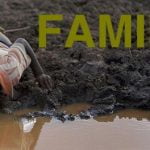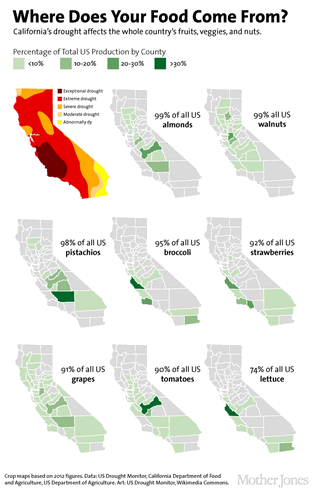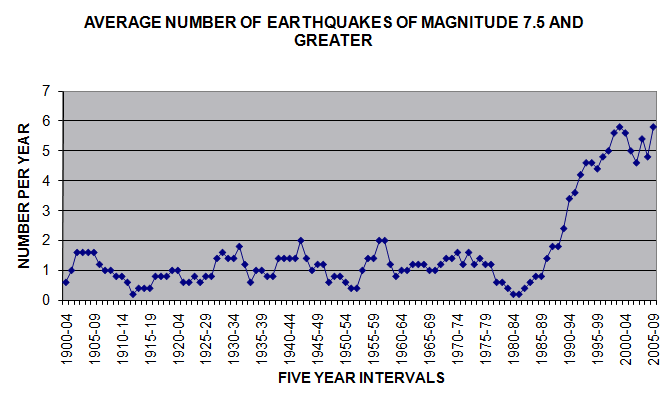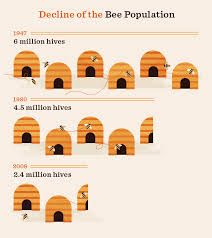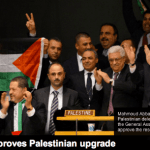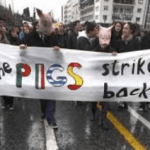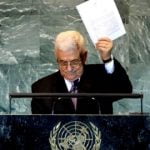President Vladimir Putin opened Moscow’s new grand mosque on Sept 23rd – Yom Kippur . The new mosque, which can accommodate 10,000 people, is the largest in Europe. Islam is the second largest religion in Russia after Orthodox Christianity, making up around 15 percent of the population.
Putin was joined at the ceremony by Turkish President Tayyip Erdogan and Palestinian President Mahmoud Abbas. Russia’s Kremlin-backed Council of Muftis said private donations covered the construction of the mosque, including contributions from Kazakhstan and Turkey.
For Abbas the meetings extended his early Kremlin contacts with Putin. Palestinian Authority Chairman Mahmoud Abbas had launched his “diplomatic intifada” against Israel with the exit from the Kerry peace initiative back in January. His meetings with President Vladimir Putin and Prime Minister Dmitry Medvedev marked his breakaway from the US-led peace process with Israel. He then signaled his bid for Russian backing for a Palestinian state.
This gave Putin a chance to widen his influence on three very important Middle East issues. He is actively arming the Syrians and has boots on the ground in Syria while providing their government new fighter jets. He has concluded a $1.5 billion dollar purchase of Iranian oil and other trade deals before sanctions with Iran are officially lifted.
Putin accepted Chairman Abbas request for help and they jointly announced a $1 billion Gas project in Gaza section of the Mediterranean with Gazprom to produce 30 Billion cubic meters of natural gas. Russia’s Technoprom export engineering firm was also considering a small oil development project near the West Bank city of Ramallah, hub of the Palestinian Authority government headed by Abbas.
The Palestinian leader began his conversation with Putin by calling Russia a great power that deserved to play a more prominent role in the volatile Middle East region.
This move confronts Israel with two troubling concerns:
1. Russian interests could potentially encircle Israel’s offshore Mediterranean gas and oil sites and Russian pipelines may block Israel’s export facilities.
2. Under international law, the Palestinian Authority is not recognized as an Independent state and is therefore not empowered to establish Special Economic Zones in the Mediterranean as closed areas for prospecting for oil or gas.
By taking charge of the offshore exploration opposite Gaza, Russia is offering its Palestinian partner implicit Russian recognition of its status as an independent national entity authorized to sign international contracts. This will help the process of creeping Palestinian Statehood without any Israeli participation.
Russia’s desire to liberate the poor oppressed Palestinians and their support in the UN for those motions have far less to do with poor Palestinians and much more to do with Oil and Gas.
A Middle East Spokesman put it bluntly – Russian tactics for Syria and Iran had proved effective, he said, and there was no reason why Moscow could not perform the same function on the IsraeliPalestinian track. It was time to end the American monopoly on peace making.
Soon all of the diplomatic initiatives in the Middle East will be in the hands of Israel’s enemies.
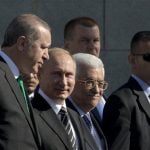
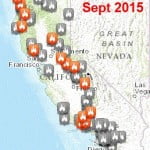
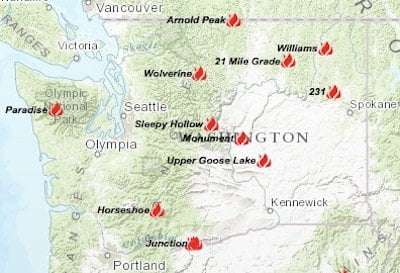

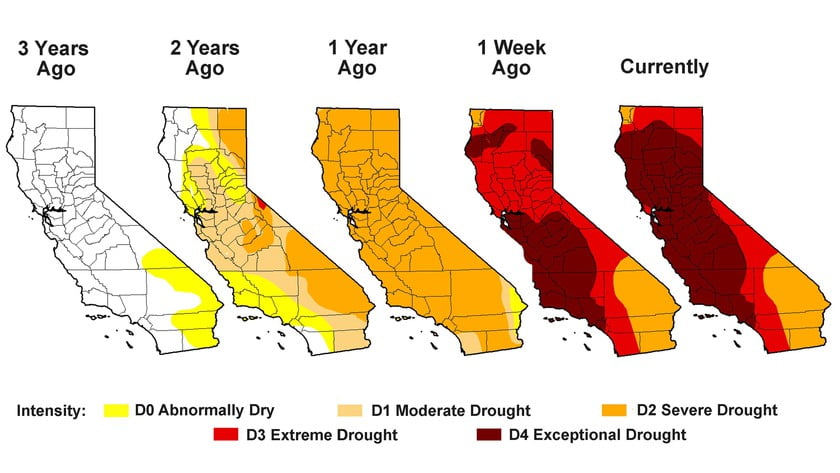 As if the drought couldn’t get any worse, geologists now think that changes in groundwater could be destabilizing the infamous San Andreas Fault. The new research presents “
As if the drought couldn’t get any worse, geologists now think that changes in groundwater could be destabilizing the infamous San Andreas Fault. The new research presents “